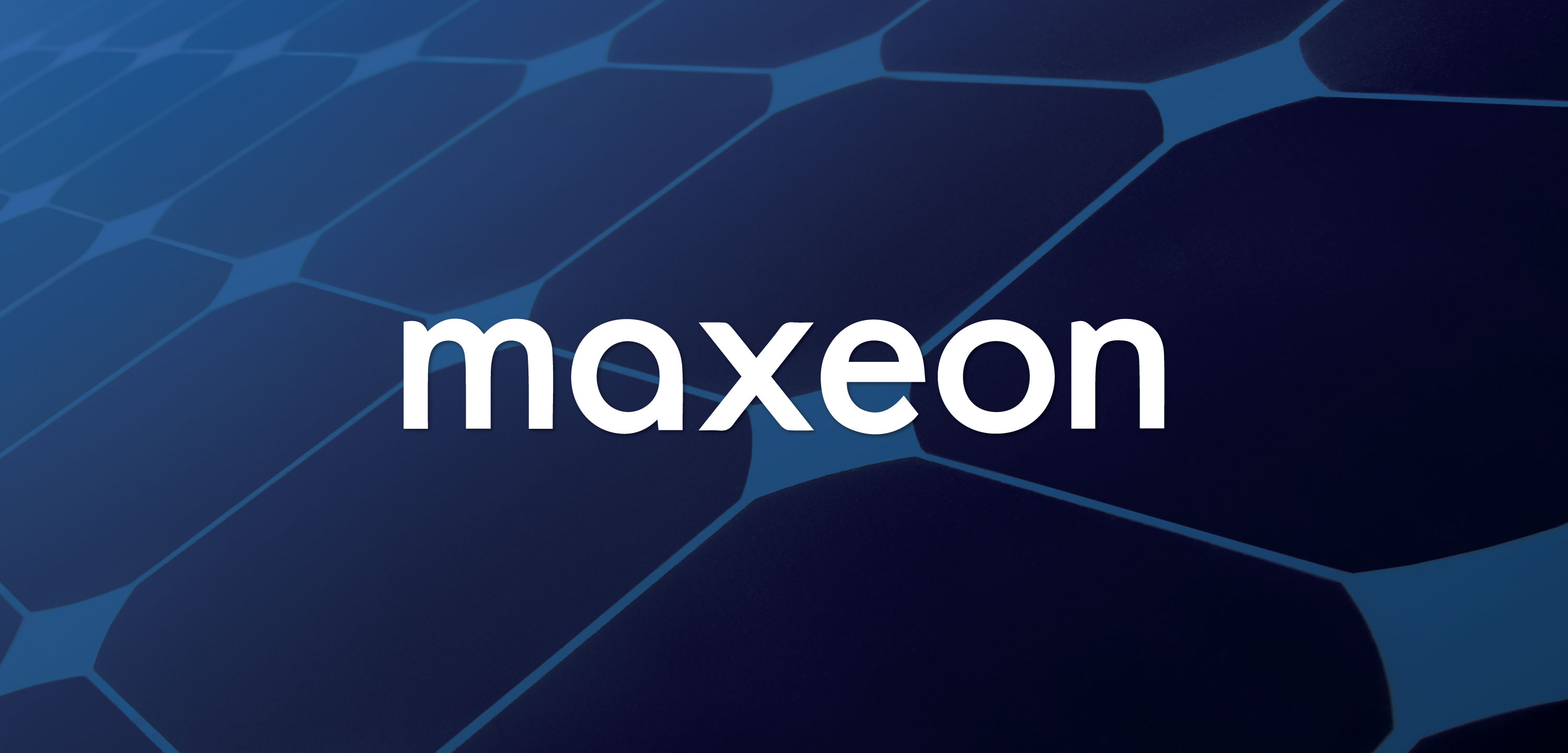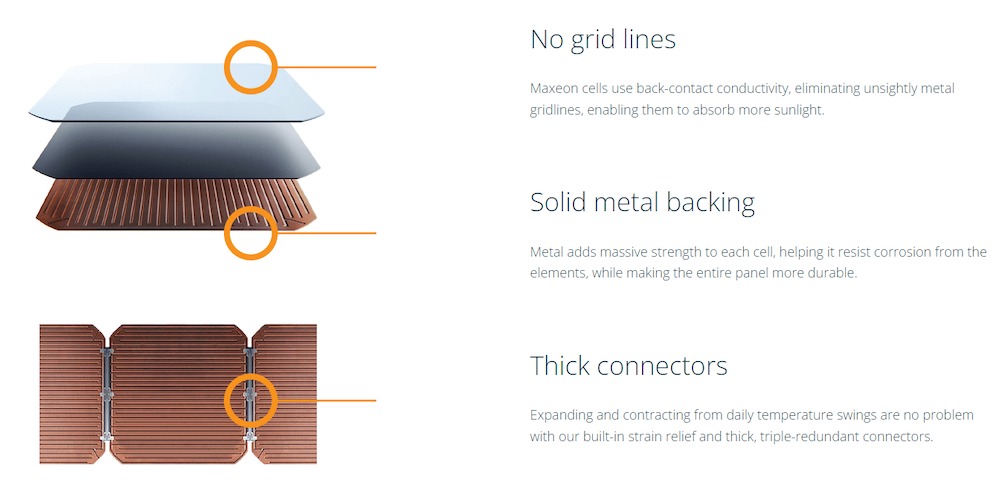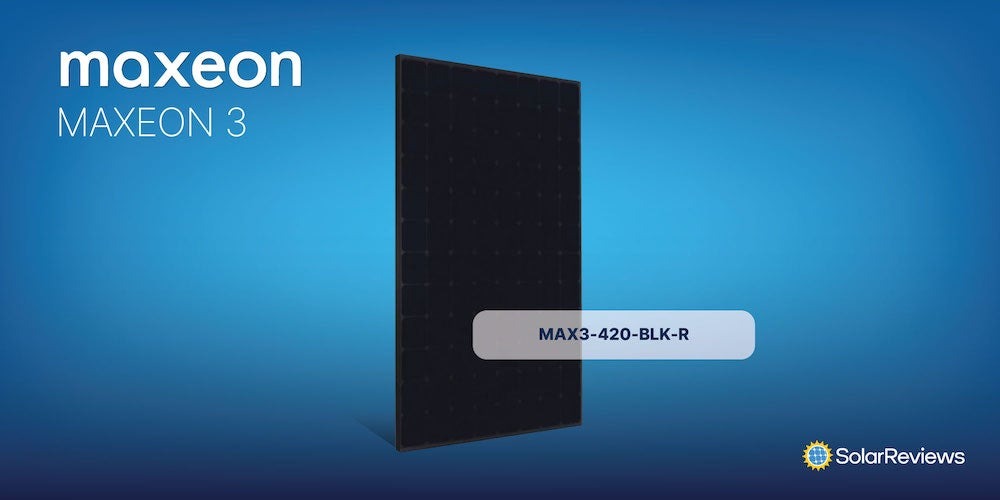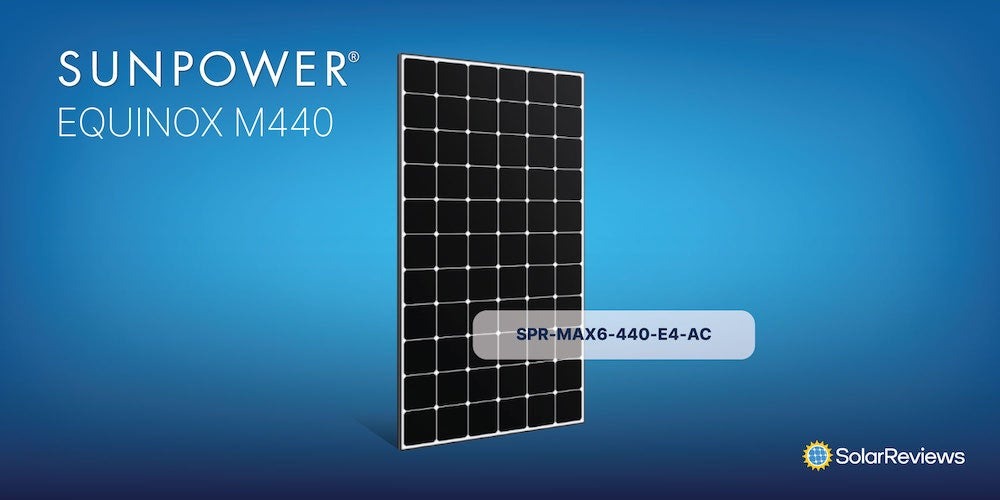Updated 1 year ago
Expert review of Maxeon solar panels: are they the best on the market?
Written by
Ben Zientara

Find out what solar panels cost in your area
If you’re shopping for solar panels, you might have come across the Maxeon brand. Solar panels from Maxeon are among the best in the world in terms of specifications, warranty, and performance. But all of that comes at a high cost.
Because of its high-quality panels and commitment to an industry-leading 40-year warranty, Maxeon earned ninth place in our ranking of the best solar panels for 2024.
Does that mean Maxeon solar panels are worth their high price? Read on to find out!
Key takeaways
-
Maxeon has been making solar panels since 1985 as part of SunPower, but the two companies separated in 2020 and now operate independently.
-
Maxeon 3 Series solar panels have a sleek all-black look and are available to any U.S. solar installer through the distributor Greentech Renewables.
-
SunPower still has exclusive access to Maxeon 6 Series panels, which it sells through dealers across the U.S.
-
Maxeon solar panels are the most efficient on the market and come with industry-leading 40-year warranties, but are also the highest cost products available.
-
A 6 kW home solar system using Maxeon solar panels might cost about $19,800, compared to the $18,000 price tag for a system that uses a different brand.
-
Despite the high initial cost, Maxeon solar panels produce excellent value for homeowners and should result in excellent performance and long-term savings.
About the company
Maxeon started its life as the technology arm of SunPower, which was founded in California in 1985. The company grew and changed for decades, both manufacturing and installing solar panels on homes and businesses and in large-scale solar farms.
In 2020, SunPower split into two separate public companies: Maxeon became the manufacturing company, while SunPower now focuses on offering turnkey residential solar installations and services in North America. Many Maxeon products are still sold under the SunPower brand name outside of North America.
For more reading, check out our full article about SunPower solar panels.
Maxeon is currently owned mostly by two very large investors: TotalEnergies and Tianjin Zhonghuan Semiconductor Co., Ltd. (TZS). The latter company made a very large investment at the time Maxeon was spun off from SunPower and now provides Maxeon with much of the raw materials used to make its products.
The company’s world headquarters is in Singapore, with office locations around the world, including an office in San Jose, California. All Maxeon solar panels used in the North American market are manufactured in Mexico, just across the U.S. border in Baja, California.
This arrangement ensures the availability of Maxeon solar panels for U.S. home installations. That’s a welcome change from solar panels made in Asia, which can sometimes end up stuck in U.S. ports or subject to high tariffs and suffer fluctuations in price and availability.
Are Maxeon solar panels any good?
In short: Maxeon solar panels are some of the best panels on the market. For many years, Maxeon solar panels have led the industry in objective measurements of solar panel performance. Here’s a quick rundown:
Maxeon makes the most efficient commercially-available solar panels, topping out at 22.8% efficiency.
Maxeon panels offer one of the best temperature coefficients in the industry, meaning their performance degrades less as temperature increases compared to panels from almost any other brand (REC solar panels are slightly better in this regard).
Maxeon’s interdigitated back contact (IBC) cells are not susceptible to potential-induced or light-induced degradation, which can be a problem for the PERC solar cells used by most of the industry.
What makes Maxeon solar panels special?
By today’s standards, Maxeon’s technology is actually kind of old. Based on patents first filed in 2003 and 2005, the solar cells used in Maxeon’s current products work so well because they were designed smartly the first time around.
Maxeon’s solar cells work so well for a few reasons: high-quality silicon wafers, interdigitated back contacts, and strong cell connectors. Here’s a look at an image from Maxeon that shows these factors in action:

Maxeon cell details. Image source: Maxeon
Electricity is produced in a solar cell when photons of light cause electrons in chemically-altered silicon to become excited. The electrons are then directed through a circuit. In most solar modules, this circuit is made up of super thin wires called busbars, which are laid on top of the cells under the module’s front glass and soldered together to connect the cells in series.
The busbar method of construction is the industry standard, and in nearly all cases, modules made this way perform extremely well without failures for decades. However, running busbars along the front surface of a solar cell does result in a minuscule amount of shade which causes a slight drop in power output. Also, when solar modules fail (which, again, is extremely rare), they tend to fail at the solder joints between cells.
In Maxeon modules, the circuit is made up of “fingers” of metal that connect to the cell on the back side instead of the front. These metal fingers are the digits described in the name “interdigitated back contacts". The back contacts of each cell are connected in series using Maxeon’s special connectors.
Maxeon says this way of constructing a solar module has four advantages:
The solid metal backing of the cell makes it more resistant to micro-cracks and corrosion.
The cell’s full surface is exposed to the sun with no wires running along it to cause output loss.
The lack of soldered connections on top of the cell prevents hotspots, which can lead to cell damage, from forming.
The thick connectors allow the cells to expand and contract from temperature changes while maintaining connection (unlike in ordinary modules, where expansion and contraction can strain soldered joints).
The company says the effect of all these advantages is a more efficient, longer-lasting solar module. Not to sound like a marketing copywriter for Maxeon, but what they say is mostly true. That’s why they can back their products up with 40-year warranties. The question is whether Maxeon panels are worth the extra cost.
Cost and where to buy
There’s no way to avoid this truth: the cost of Maxeon solar panels is higher than nearly every other product on the market. In general, expect to pay $0.20 to $0.30 more per watt for a solar installation that uses Maxeon modules compared to the industry average.
For example, an average 6-kW solar installation has a cash price of $3 per watt, or $18,000 total, while a Maxeon installation might cost $3.30/W or $19,800. If you choose to get Maxeon solar panels from a SunPower dealer, you also get access to SunPower monitoring and ongoing customer service but expect to pay an even higher premium for these benefits.
People who demand the best products in the world will no doubt have read the section on quality above and immediately wondered where they can get Maxeon solar panels. Luckily, there are more places than ever before to get them.
Maxeon 3 Series solar panels are now available to U.S. installers through Greentech Renewables, and Maxeon 6 Series panels are available through SunPower dealers.
Current product lines
Maxeon currently offers several product lines comprising both rigid and flexible solar panels. The company’s products can be used on everything from home and business rooftops to RVs, as well as utility-scale solar power plants.
As SolarReviews is focused squarely on the U.S. home solar market, the Maxeon products our readers will be most interested in are the company’s 3 Series and 6 Series lines.
Maxeon 3

In 2023, Maxeon released the Maxeon 3 Series all-black solar panels, with 112 solar cells arranged in an 8-by-14 grid. The lack of busbars and gridlines on the front of the modules and the black backsheet gives these modules a sleek appearance.
Depending on the efficiency of the cells inside, Maxeon 3 panels offer between 21.4% and 22.2% efficiency, and can output between 405 and 420 watts under standard test conditions (STC). The industry standard for efficiency is between 20.5% and 21.5%, and only a couple other companies touch 22%+ today.
These all-black Maxeon 3 series modules are available to solar installers all across the U.S. from Greentech Renewables. Find a Maxeon dealer by getting quotes from solar companies near you.
SunPower Maxeon 6

Following a renewal of their long-term deal in early 2023, Maxeon 6 series modules are exclusive to SunPower. These modules use 66 larger solar cells in a 6-by-11 layout. At up to 22.8% efficiency, they can produce up to 440 watts under standard test conditions.
Again, choosing SunPower will likely be more expensive than buying Maxeon modules through another installer.
Bottom line: Are Maxeon solar panels worth the cost?
The basic question here is: if Maxeon solar panels claim to last for 40 years and degrade slower than most other brands, is paying the extra 30 cents per watt for them a good deal? The short answer to that question is absolutely yes.
Here are the facts:
Maxeon solar panels have a 40-year product warranty, vs. the 12 to 25 years of most other brands.
Maxeon panels have a 40-year production warranty saying their output is expected to decline by 0.25% of the initial level per year for 40 years, vs. an industry average of -0.5% per year for 25 years.
If you get that level of performance out of these panels, for years or even decades longer than panels from other brands, a $0.30/watt difference is absolutely a good deal. If an installer is pitching you on Maxeon panels with a premium of more like $1.00 per watt, the difference is much closer, but Maxeon modules should still provide more value than other brands, even at that price.
Read more about how to judge the return on investment of a solar installation, or keep your solar journey going by locating solar companies in your area.
Ben Zientara is a writer, researcher, and solar policy analyst who has written about the residential solar industry, the electric grid, and state utility policy since 2013. His early work included leading the team that produced the annual State Solar Power Rankings Report for the Solar Power Rocks website from 2015 to 2020. The rankings were utilized and referenced by a diverse mix of policymakers, advocacy groups, and media including The Center...
Learn more about Ben Zientara